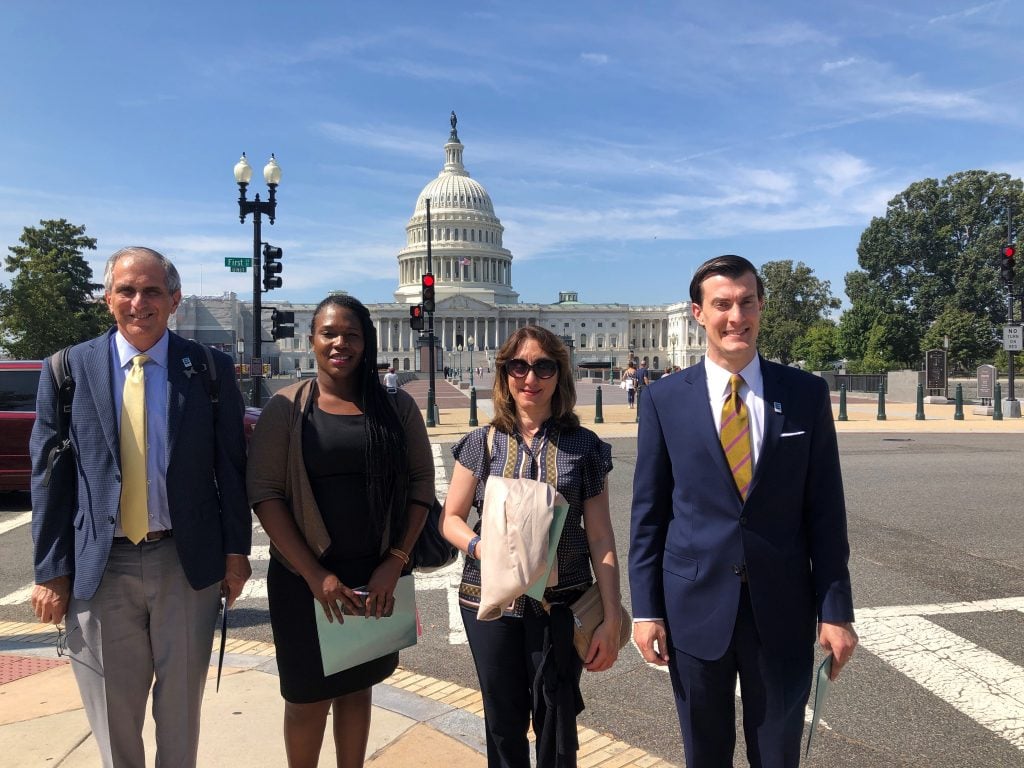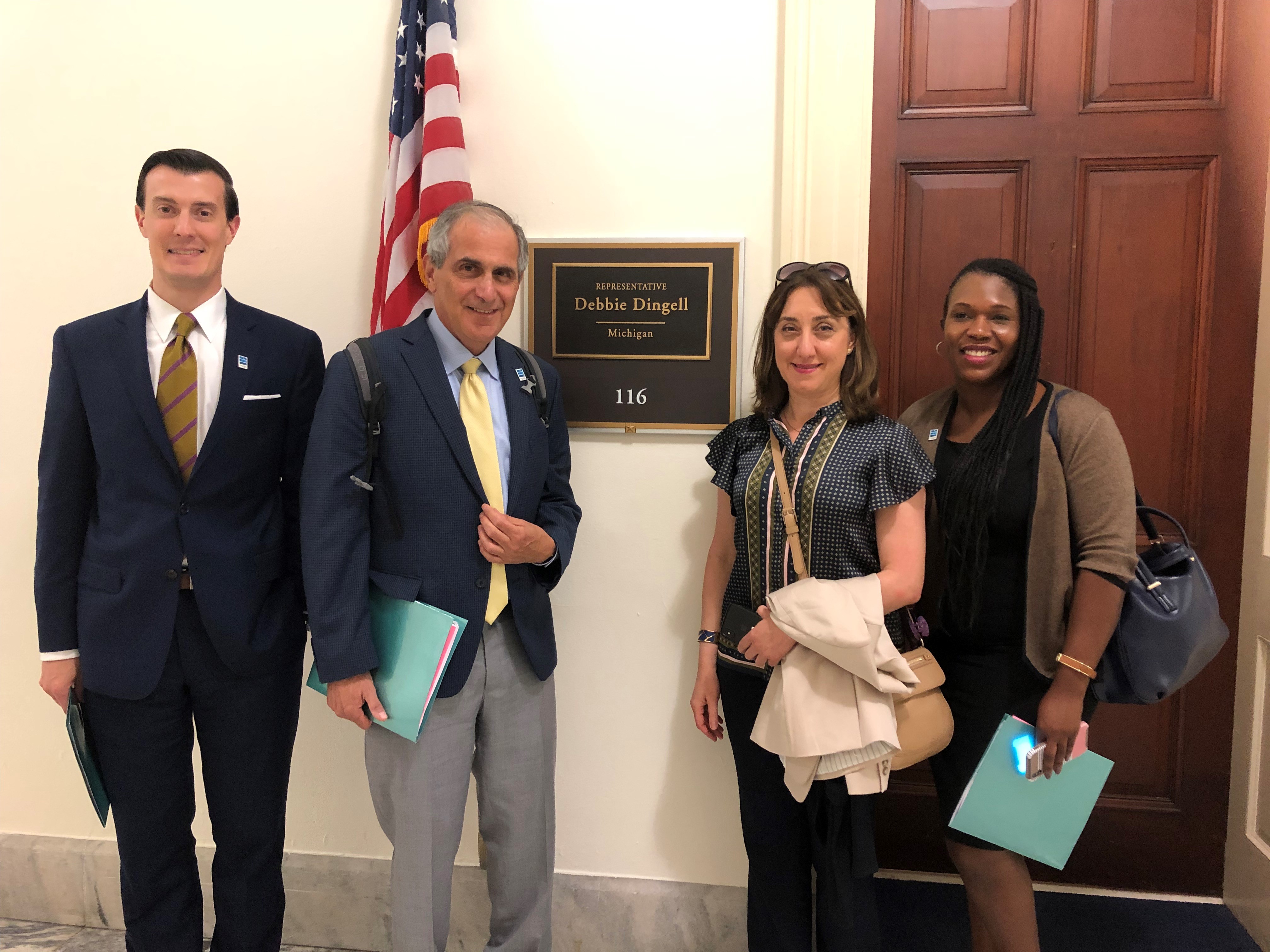
There is no shortage of interesting things going on in Washington, D.C., these days, from impeachment inquiries to funding the government to deciding on a Democratic nominee for the 2020 election.
On September 28, our clinical leaders came to Washington to use their voice to advocate for a range of issues, including the renewal of the Special Diabetes Program, making insulin more affordable, and opportunities for endocrinologists to use telehealth for patients who have diabetes in pregnancy or osteoporosis. We conduct several Hill Days throughout the year for both clinicians and researchers to advocate on behalf of their practice, patients, and research — and our messages are getting through. Here’s what we heard:
During our visits, congressional offices overwhelmingly recognized the importance of reauthorizing the Special Diabetes Program, which will expire on November 21 if no action is taken. This program has made significant strides over the last 20 years to promote type 1 diabetes research and prevention and treatment initiatives in at-risk populations with type 2 diabetes. As a result of our advocacy efforts, there is widespread, bi-partisan support for the Special Diabetes Program in both the House and Senate and we expect a renewal to be included in an extenders package this fall.

Members of Congress were also strongly supportive of addressing insulin access and affordability. We have been working on this issue for years, testifying before Congress, working with the Congressional Diabetes Caucus to develop policy recommendations, and weighing in on relevant legislation that could help lower the cost on insulin. Comprehensive drug pricing packages have been developed in both chambers of Congress, but some momentum has been lost on this issue as a result of the impeachment inquiry.
In the House of Representatives, the “Lower Drug Costs Now Act” was introduced to enable the Department of Health and Human Services to negotiate prices on 250 of the costliest drugs, including insulin. The bill also caps out-of-pocket costs for prescription drugs at $2,000 and penalizes manufacturers that do not participate in drug price negotiations. The Senate introduced a similar proposal, the “Prescription Drug Pricing Reduction Act of 2019” that would cap out-of-pocket prescription drug costs at $3,100 and limit price increases in Medicare Part B and D if they exceed the rate of inflation. The legislation does not include a provision on drug price negotiation. It is unclear how and if the House and Senate will reconcile these proposals; however, we will report back in a future issue of Endocrine News about the outcome and its impact on endocrinology.
As a result of our advocacy efforts, there is widespread, bi-partisan support for the Special Diabetes Program in both the House and Senate and we expect a renewal to be included in an extenders package this fall.
Finally, there are a number of opportunities to explore the use of telehealth for people with chronic conditions like diabetes and osteoporosis. We are working with the Congressional Telehealth Caucus to integrate these ideas into a pilot in an upcoming legislative package on telehealth. On the Hill Day, our members educated their congressional delegations about ways that telehealth could be used to improve outcomes for people with diabetes who become pregnant and individuals who are in a skilled nursing facility following a fracture. We will continue to work with Capitol Hill to promote the use of endocrinologists to increase access and quality care.
Interested in getting involved in our advocacy? You can join our online advocacy campaign (endocrine.org/takeaction) to urge your representative and senators to support renewal of the Special Diabetes Program or contact [email protected] to learn more about how you can support these efforts and more.

